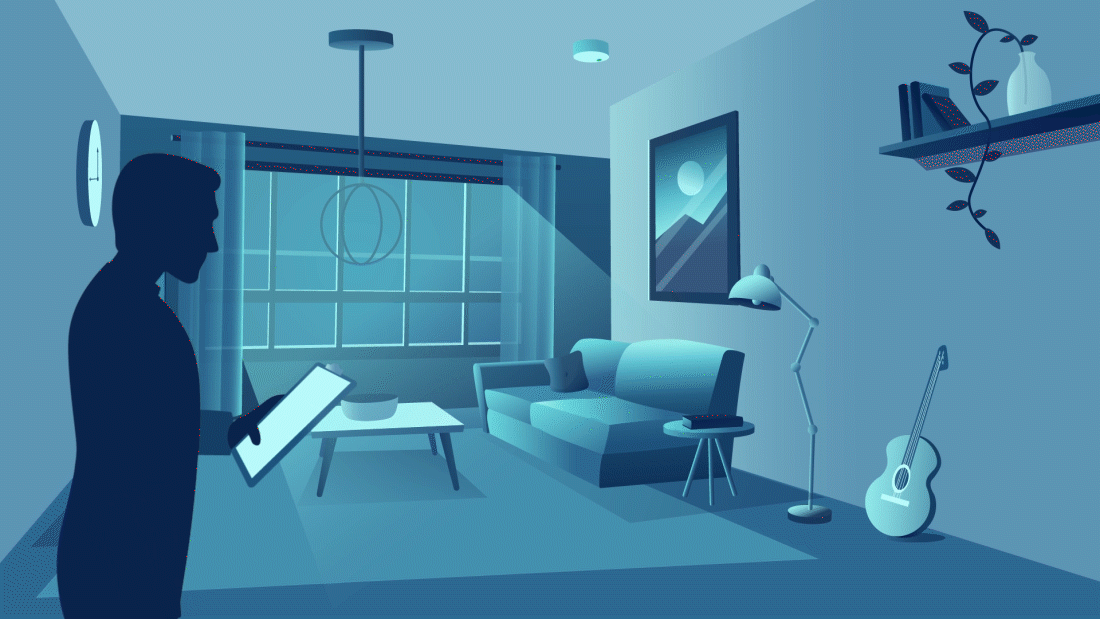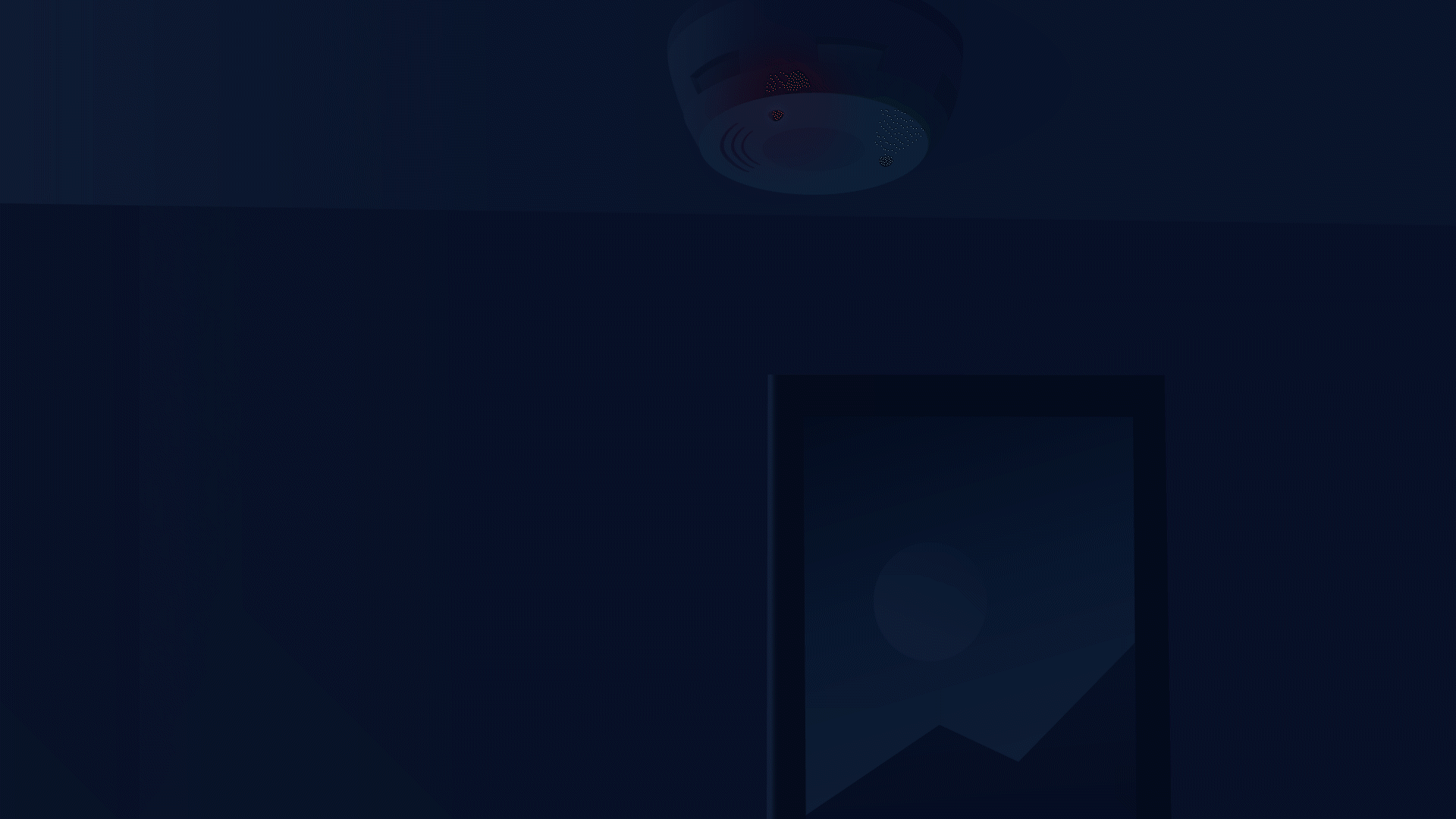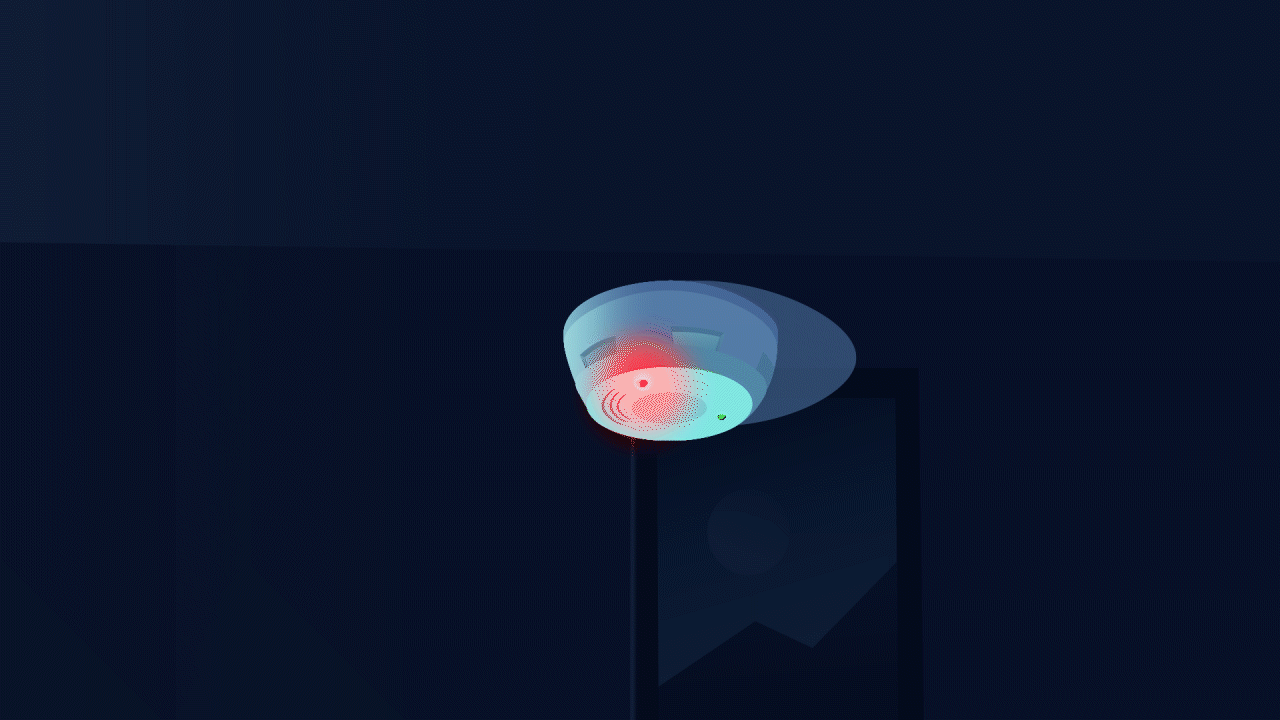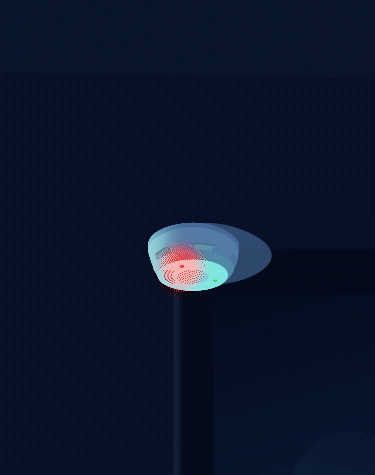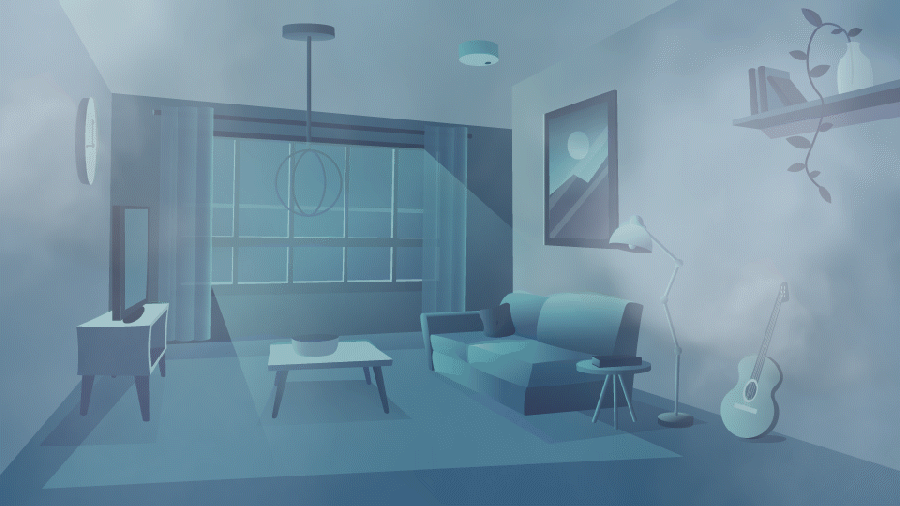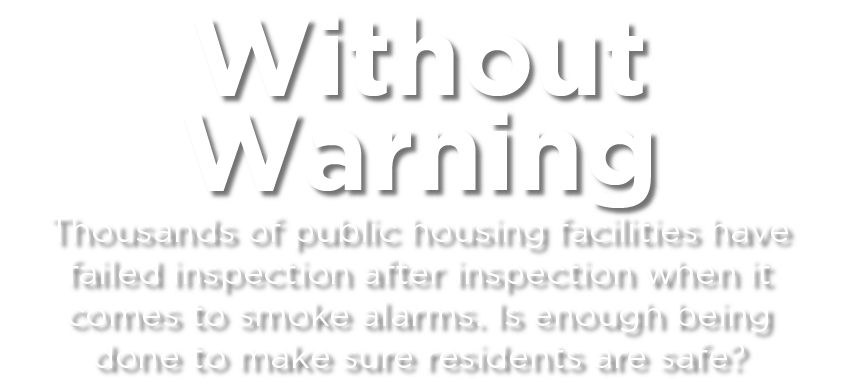It's not just Southern California. Data shows the problem exists nationwide.
Across the country, more than 1 million Americans are living in federally-funded housing complexes where inspectors have found there were not enough working smoke detectors.
In thousands of those complexes, the problems showed up on inspection after inspection.
ABC Owned Television Stations obtained and analyzed records from every published federal government inspection of subsidized housing since 2014 and found more than 11,000 complexes nationwide cited for missing, broken or otherwise inadequate smoke alarms.
That's 41% of all complexes run by public housing authorities or private landlords who get subsidies from taxpayers across the country. Many are home to elderly and disabled residents.
The problem in some cities was worse. Half or more of the complexes in New York, Houston and Chicago had been cited for not making sure smoke detectors were in place and working. In the suburbs of Bayonne, Newark and Jersey City in New Jersey, it was two-thirds of properties.
At more than 4,000 low-income housing sites nationwide, the ABC stations' exclusive data analysis reveals inspectors found smoke alarm problems on more than one inspection from 2014 through 2019.
The data analysis also found:
- At three of every four public housing complexes where inspectors discovered smoke detector problems, the inspectors also reported other dangers they considered "life-threatening" such as electrical hazards and blocked fire exits. At more than 8,000 facilities, life-threatening dangers showed up on multiple inspections.
- Despite knowing about smoke alarms and other safety problems, government inspectors returned to inspect properties months or even years behind schedule. About 90% of complexes with smoke alarm problems were inspected late, based on HUD's rules.
- Among the public housing facilities cited for smoke alarm problems were more than 2,800 complexes serving the elderly and 775 more serving disabled residents.
The federal government posts all of its inspection scores and some details about deficiencies - such as smoke detector problems - on HUD's public website and updates the records regularly. The most recently published data listing the inspection scores, which ABC reviewed, is current through 2019 for the vast majority of properties. In some states, the latest inspections published for public housing authorities were in 2018.
The investigation did not find problems with the smoke alarms or their manufacturers. Many of those companies work year in and out with fire departments and volunteer groups to give away detectors to anyone who needs them.
Rather, the investigation focused on the federal government's failure to make sure owners - whether they are public housing authorities or private landlords who receive federal subsidies - ensure their properties meet federal safety standards. That includes making sure smoke alarms are in place and working.
The federal rules say owners must install detectors in every home or apartment and check back regularly to make sure they work. That includes replacing batteries, which the rules say is among the owners' responsibilities. Owners also must set rules forbidding tenants from disabling smoke alarms.
Owners who don't follow federal guidelines can be penalized. For example, private landlords can lose the government money they're getting for providing safe housing.
Experts who study fires say people are more likely to be hurt or killed in fires in structures without working smoke detectors.
Thousands of fires happen in public housing complexes every year, according to an analysis of federal data. That includes many complexes where records show that HUD's inspections have found smoke alarm issues.
The head of the U.S. Department of Housing and Urban Development, which is responsible for inspecting the housing complexes to make sure they are safe, said the federal agency is aware of the problems and is working on them.
Carson told ABC's WTVD that the agency is working to improve its oversight system - to make sure smoke alarms are in place and that inspections happen on time. Carson said the agency is in the process of overhauling its inspection system.
"Over the last decade, it simply has not been adequate," Carson said.
Carson, and other HUD officials, said sometimes residents disable smoke alarms. Whenever inspectors or other housing officials identify problem alarms, they're required to fix them immediately.
He said HUD is warning housing authorities, private owners and residents about the importance of making sure that working smoke detectors are in place.

